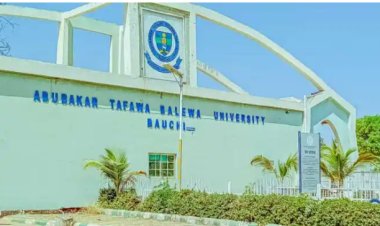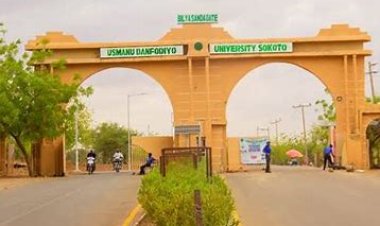UNILAG Esteem Chief Arthur C.I. Mbanefo Celebrates 93rd Birthday
Chief Arthur C.I. Mbanefo, MFR, CON, the esteemed donor of the Arthur Mbanefo Digital Research Centre (AMDRC), University of Lagos (UNILAG), on celebrating the 93rd birthday made it an occasion.
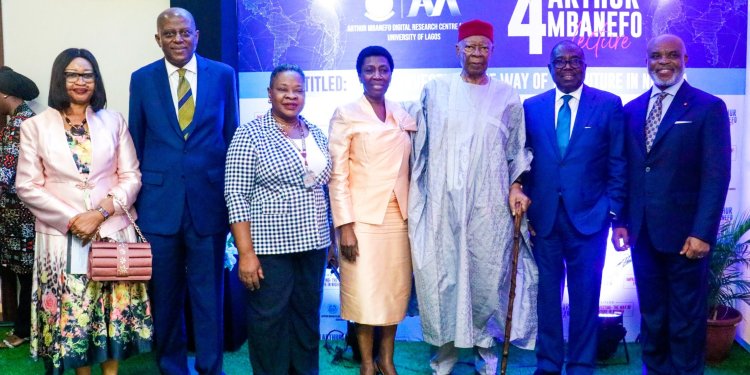
Chief Arthur C.I. Mbanefo, MFR, CON, the esteemed donor of the Arthur Mbanefo Digital Research Centre (AMDRC), University of Lagos (UNILAG), on celebrating the 93rd birthday made it an occasion.
On the momentous occasion of celebrating the 93rd birthday of Chief Arthur C.I. Mbanefo, MFR, CON, the esteemed donor of the Arthur Mbanefo Digital Research Centre (AMDRC), University of Lagos (UNILAG), and former pro-chancellor of the University, Dr. Yemi Cardoso, Chairman, Hermes Capital, delivered a captivating lecture titled “Impact Investing: The Way of the Future in Nigeria.”
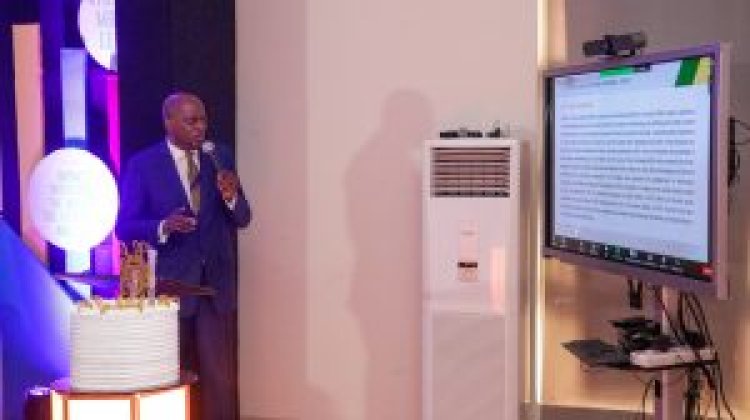
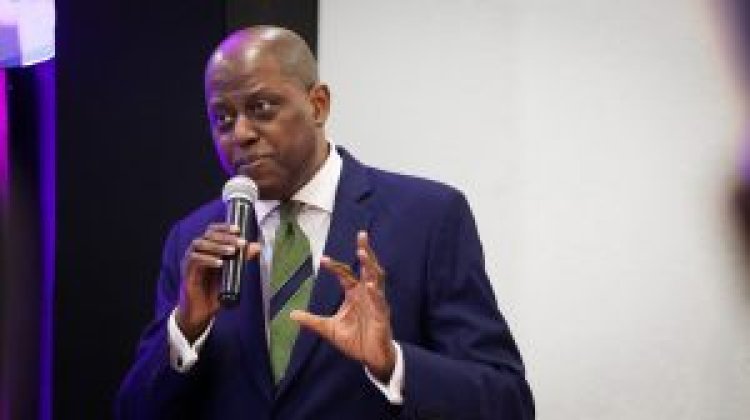
The lecture, held on Friday, June 16, 2023, at AMDRC, UNILAG, served as an insightful discourse on the transformative power of impact investing and its potential to shape the future of Nigeria. Held in the heart of the university, the event attracted a diverse audience, including industry professionals, members of the university community, and esteemed guests, all eager to gain deeper insights into this emerging field.
Dr. Cardoso, who is also a member of the Nigeria National Advisory Board of Impact Investing, commenced his lecture with a warm tribute to the former UNILAG pro-chancellor, Chief Arthur Mabanefo, recognizing his exceptional contributions to humanity and his proclivity for taking time seriously. Referencing his years of being in close relations with Chief Mbanefo, who holds one of the highest titles in Onitsha, Anambra State, Nigeria, Odu of Onitsha, he described him as a bridge builder who linked the older generation of the Board of Citi Bank to the younger generation, like himself, who transitioned from being a father figure to being a brother and then a friend.

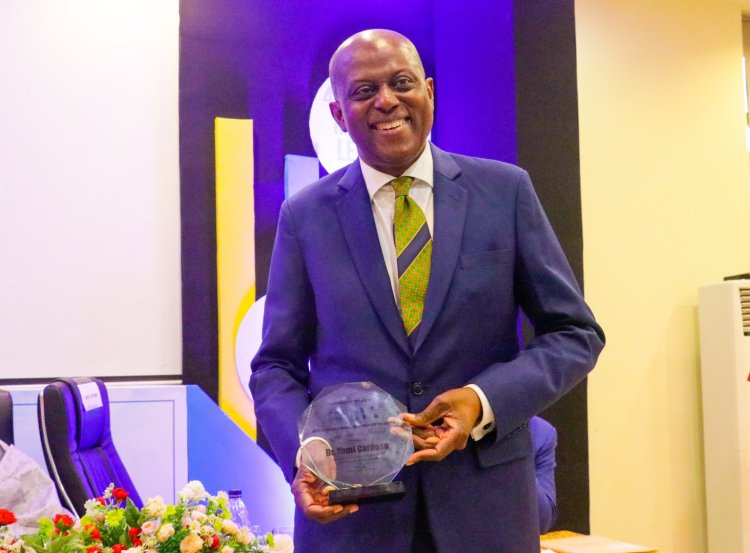
Dr. Cardoso informed the gathering that impact investing had the potential of transforming Nigeria’s economy by addressing social and environmental challenges while also generating financial returns. He averred that although one of the key issues Nigeria had grappled with over time was the issue of funding, however with close scrutiny of the fundamental structures of this issue, he was able to figure out that diversification of revenue was one of the ways to solve the problem. He noted that for some reason, such as lack of organisation among other, this has been difficult to achieve.

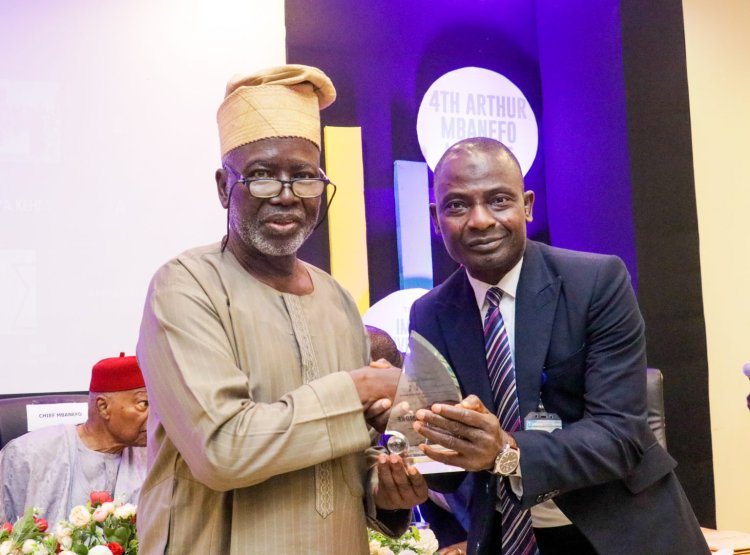

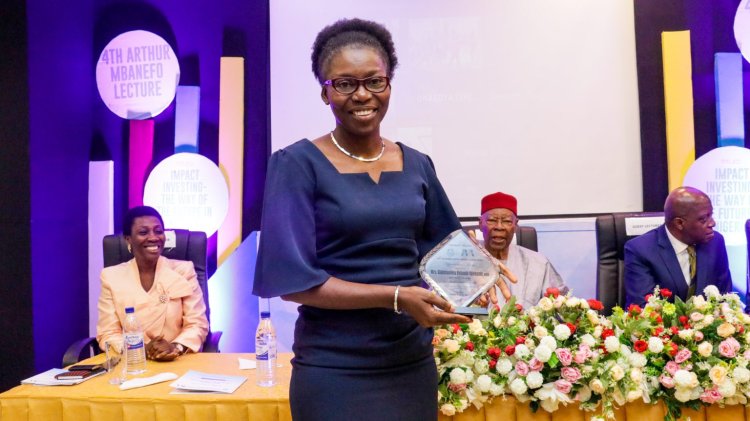
According to him, it is important to note that “impact investing is certainly an element that contributes towards the diversification of revenue.” The term “impact investing” was coined and defined as “investing intentionally for measurable, positive social and/or environmental outcomes”, at a conference hosted by Rockefeller Foundation at its Bellagio Conference Centre in Italy.
The leading expert in impact investing enumerated several investment strategies and how they are related to impact investing. They are:
Environmental, Social, and Governance (ESG)
Corporate Social Responsibility (CSR)
Socially-Responsible Investing (SRI)
Social Investing
Mission-Related Investment (MRI) and Program-Related Investment (PRI)
Bottom of the Pyramid (BoP) Investing
Creative Capitalism
Social Business Investing
Inclusive Business
Dr. Cardoso posited that for impact investments to effectively contribute to positive social and environmental impacts and maintain credibility as more capital becomes available for them, the financial markets need clear definitions of expected practice and the terms of participation in the market. He expounded that the following core characteristics of impact investing, as defined by the Global Impact Investing Network (GIIN), can serve as guidelines for impact investors and provide benchmarks for evaluating potential investment partners:
Contribute deliberately to positive social and environmental outcomes by financing opportunities and solutions for social and environmental problems.
Utilize evidence and impact data when designing investments to maximize their positive impact.
Manage impact performance by incorporating impact performance data into decision-making in order to direct investments toward social and environmental goals.
Contribute to the expansion of the impact investing industry by enabling a greater number of investors to make effective impact investments.
With a wealth of practical insights, Dr. Yemi Cardoso emphasized the potential of impact investing as a powerful force for sustainable development and positive societal change in Nigeria.
He highlighted how impact investing transcends traditional investment approaches by deliberately seeking to generate measurable social and environmental impact alongside financial returns. By aligning investment strategies with the United Nations Sustainable Development Goals (SDGs), impact investors actively contribute to solving pressing issues such as poverty alleviation, healthcare access, education, and climate change.
Nigeria, being Africa’s most populous nation, faces a range of challenges that require innovative solutions. During the lecture, Dr. Cardoso gave an overview of the impact investing landscape and cited a few case studies of the application of impact investing on the world stage.
His lecture highlighted green bonds, impact bonds, wholesaler funds for impact investment etc. as instruments of impact investing and he gave insights to their application.
Dr. Cardoso asserted that impact investing in Nigeria has the potential to transform the country’s economy by addressing social and environmental challenges while also generating financial returns. He informed that Nigeria takes the lead in West Africa in expanding its impact investing landscape and this can be seen in some inspiring examples of how such investments have positively influenced the lives of marginalized communities and contributed to economic growth.
With the teeming population of Nigerian youths, many of whom are unemployed or underemployed, Dr. Cardoso posited that impact investing can be critical in creating jobs, improving access to education, healthcare and financial services and promoting sustainable development. Appreciating the continued existence of challenges in varying forms, he shared a few lessons and actions that can catalyse the growth of impact investing in Nigeria as his lecture came to an end.
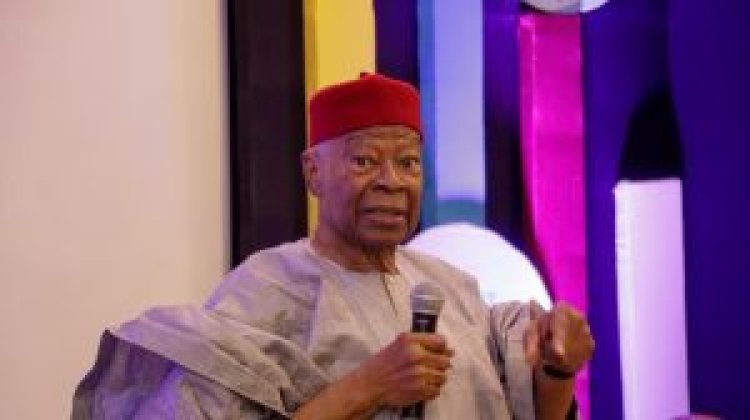
The celebrant of the day, Chief Arthur Mbanefo, expressed gratitude to the Board of the Centre (AMDRC) for the maintaining the culture of holding the lectures and the quality of lectures that have been delivered in the past four (4) years. He emphasized the role of education in promoting impact investing that the lecturer of the 4th Arthur Mbanefo Lecture had spoken extensively on. He shared his experience in the benefits of impact investing, citing his endowment of the Arthur Mbanefo Digital Research Centre (AMDRC) in the University of Lagos (UNILAG) and how that has turned out to be a gift that keeps on giving.

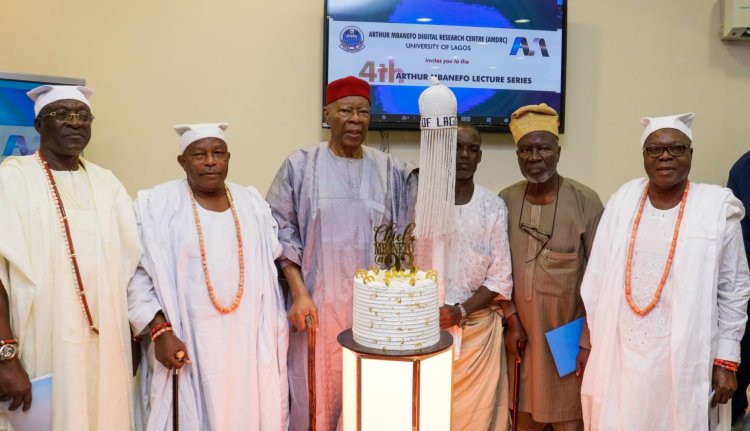
He appreciated all who honoured him with their physical and virtual presence at the lecture and expressed his hope that such enlightening lectures will continue even when he is not around.
Earlier, Professor Ayodele V. Atsenuwa, Deputy Vice-Chancellor of the University of Lagos, who represented the Vice-Chancellor, Professor Folasade T. Ogunsola, OON, appreciated the celebrant, Chief Mbanefo, for his philanthropy. She expressed her keen interest in the topic of the lecture, which she believed will shed light to the fact that “even in Nigeria, philanthropy can change universities.”

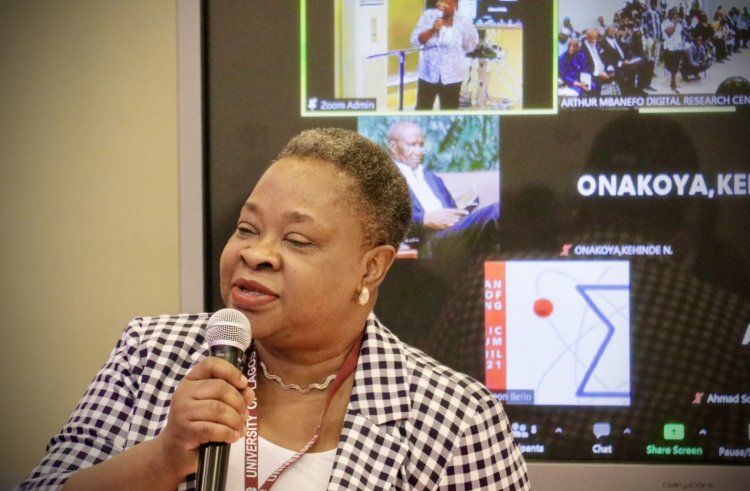
Professor Atsenuwa, while entrusting Chief Mbanefo with the faith of exploring his networks for more impactful contributions to the University of Lagos, called on the movers and shakers of industry to support quality higher education delivery in Nigeria as it is paramount to achieving superior quality for Nigeria’s future.
UNIVERSITY OF LAGOS WEB
MySchoolNews reporting.

 Emelie
Emelie 
